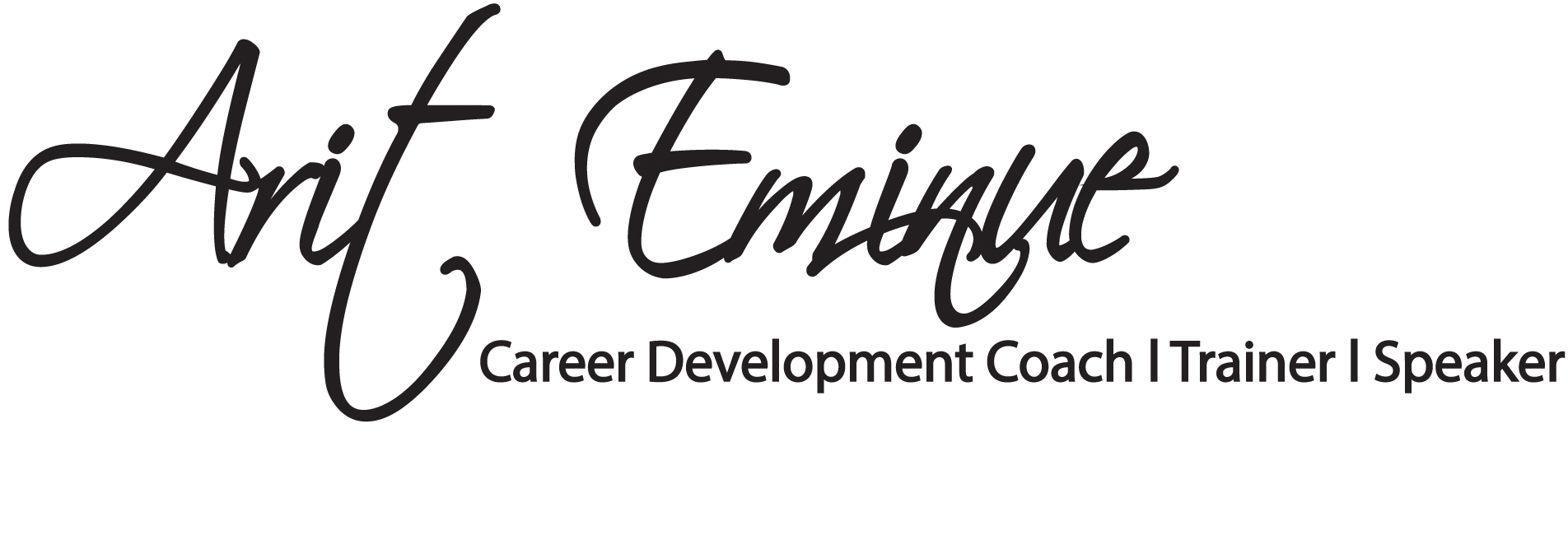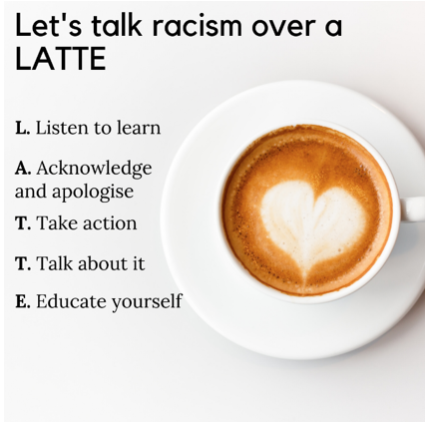Are you scared of being called out for being racist? Pull up a chair and have a LATTE
Recently, I held the co-founders of an organisation accountable for racially insensitive emails I had received from one of their employees. I agonised over raising the issue with them, partly because it’s an emotionally draining conversation to have and secondly, historically, it rarely resolves in my voice being heard let alone action being taken.
However, one of the commitments I made to myself, in the aftermath of the Amy Cooper incident and brutal murder of George Floyd, was to hold folk accountable so, I had to walk the talk as it were. It was a challenging conversation to have and an important one. There was defence, a focus on intent as opposed to impact, yet through open honest dialogue lessons were learned on both sides, and my voice was heard.
To quote the author, Ijeoma Oluo: “The beauty of anti-racism is that you don’t have to pretend to be free of racism to be anti-racist. Anti-racism is the commitment to fight racism wherever you find it, including yourself. And it’s the only way forward.” The way forward relies on conscious effort, and conversation. However, how do you have that conversation, especially when the very thought that what you said or did could be racist leaves you paralysed in fear?
If you are fortunate enough to be held accountable for a racist comment/action you have made (and I say fortunate, as it is an opportunity for you to lean in and unlearn beliefs that cause others harm), pull up a chair and have a LATTE. No, not the version you pick up from your favourite coffee shop, although you can bring that to the table too, rather a framework I have created, birthed from this experience, which will hopefully make the exchange easier to work through.
L. Listen to learn: becoming defensive is a natural response. We all want to protect ourselves when we feel like we are being attacked. The difference here is you are not being attacked; you are being held accountable. Listening to learn will expand your capacity to understand where someone is coming from.
A. Acknowledge and apologise. Focus on the impact your words or actions have had rather than your intention. When you lead with your intention you devalue how your actions have made another person feel. Being on the end of racist abuse is painful whether it was intentional or not. As Dr Maya Angelou said: “People may forget what you said, but they will never forget how you made them feel.”
T. Take Action. Now you know better, do better. Ask yourself: “what can I commit to doing differently from this point onwards?” Something good must come out of what will have undoubtedly been an uncomfortable exchange.
T. Talk about it. Don’t let embarrassment or a feeling of shame prevent you from sharing your experience with those in your network. Becoming an ally requires conscious effort, part of which can involve sharing experiences.
E. Educate yourself on racism. Most of us have gone through an education system which was devised and retold through the lens of the oppressor, and not the voice of the oppressed. We exist in a society interwoven with structural racism. Therefore, if you are white, you will have a racist bone in your body. There is no shame in that – it is what it is. The more you educate yourself, the more you will see it, and be able to tend to it.
I hope you find the framework a helpful tool to use. Remember, becoming anti-racist is a marathon, not a sprint. You are going to jack things up, offend someone, and feel uncomfortable. When that happens, try repeating the words of Brené Brown: “I am not here to be right. I am here to get it right.”




Hi Arit, I read your interesting article in Coaching Perspectives and Hetty Einzig suggested I contact you. I am a white South African and have spent a lot of time and emotional energy on the issue of racism. Over the past few years I found that I was taking time a bit of out from the internal searches regarding my own racism however, like you when George Floyd was killed, it ignited me. I realised there was a new take on the issue, and Robin DiAgelo’s ‘White Fragility’ became the book I wanted to be with a lot!
I have always known that the coaching space has been dominated by whiteness yet I have colluded in the silence about it. My contact with Hetty was about the question ‘How can we raise the issue of anti-racism within the coaching space and find change on how white coaches see it?’ Having pondered over it some more, my thought is perhaps approaching it through a corridor where (in particular) white coaches can explore it without a sense of judgement and become intrepid travellers through this journey of change, might be a better way. I am hoping that you and I can talk about it some more and maybe get a few coaches together to start a bigger conversation on it; it would be great if you contact me about it. I look forward to hearing from you about it. Fenella
I loved as much as you will receive carried out right here.
The sketch is attractive, your authored subject matter stylish.
nonetheless, you command get bought an shakiness over that
you wish be delivering the following. unwell unquestionably come
further formerly again since exactly the same nearly a lot often inside case you shield this
increase.
Feel free to surf to my blog best cannabis gummies [peninsuladailynews.com]